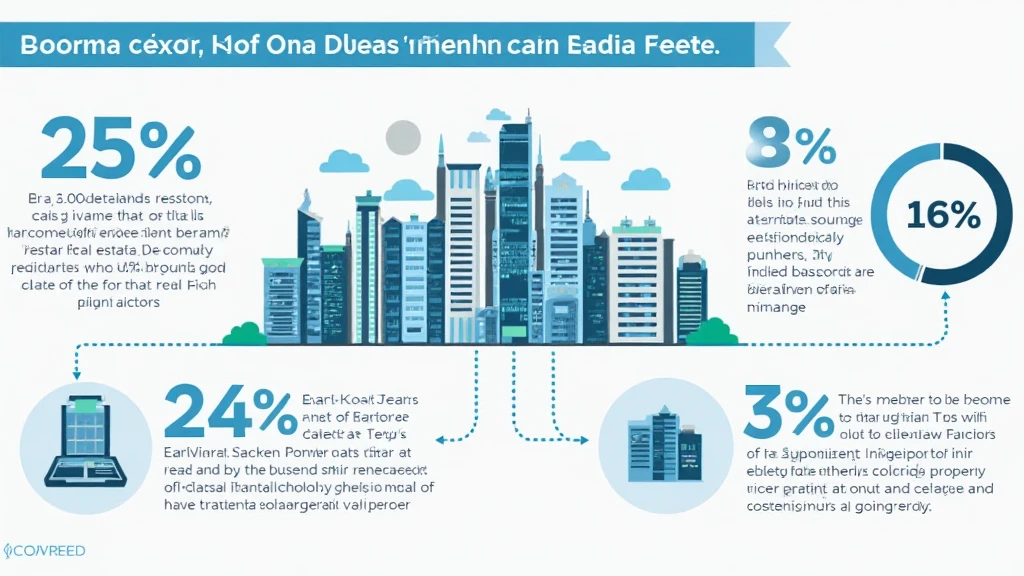Introduction
As of 2024, the Dubai real estate market has seen staggering growth, accounting for over $1.5 billion in transactions amidst the rising demand for technology-driven solutions. A notable challenge faced by real estate players is the inefficiency and opacity in traditional property dealings. Enter blockchain technology, which promises to address these challenges effectively. With blockchain, the process of buying and selling property can become as seamless as sending a cryptocurrency transaction.
This article will delve into how Dubai’s real estate sector is adopting blockchain technology through whitepapers that outline various initiatives aimed at transforming property transactions. We’ll explore the implications of these advancements on security, transparency, and investment opportunities. We will also touch upon related aspects, such as Vietnam’s growing interest in blockchain for real estate, highlighted by the increasing user base in the region.
Understanding Blockchain in Real Estate
What is Blockchain?
Blockchain is a decentralized digital ledger that secures and verifies transactions across a network of computers. Its key features include immutability, transparency, and security, making it an attractive option for industries like finance and real estate.

Benefits of Blockchain in Real Estate
- Increased Transparency: Blockchain‘s public ledger allows all parties to access property information, mitigating fraud risks.
- Enhanced Security: Transactions are cryptographically secured, reducing the likelihood of errors and fraudulent activities.
- Cost Efficiency: By eliminating intermediaries, blockchain can significantly reduce transaction costs.
- Faster Transactions: Significantly decreases the time needed for property transfers, making exchanges nearly instantaneous.
Dubai’s Blockchain Initiatives in Real Estate
The Dubai Land Department’s Blockchain Strategy
The Dubai Land Department (DLD) has been a pioneer in integrating blockchain technology into the city’s real estate ecosystem. By 2022, the DLD initiated the Dubai Blockchain Strategy to make all real estate transactions in the emirate paperless and digital. According to their reports, this transition aims to save 5 million printed documents annually, reflecting a move towards sustainability.
Real Estate Blockchain Whitepapers
Various studies and whitepapers have emerged from Dubai’s push towards blockchain integration. Here are some notable examples:
- Whitepaper on Smart Contracts: This document outlines the use of smart contracts in real estate transactions, ensuring automated and secure agreements between buyers and sellers.
- Tokenized Asset Ownership: This paper discusses how tokenizing real estate properties can increase liquidity and broaden the pool of investors.
- Blockchain for Property Management: A comprehensive guide to utilizing blockchain for property management tasks, streamlining various operational processes.
Case Studies of Blockchain Implementation in Dubai
Example 1: Emaar Properties
Emaar Properties, one of Dubai’s largest developers, has integrated blockchain technology to manage transactions more efficiently. Their digital infrastructure allows potential buyers to execute offers and payments directly through secure blockchain networks, reducing the overall time to close properties.
Example 2: Nakheel
Nakheel has partnered with blockchain technology firms to develop an integrated platform for managing development, sales, and after-sales processes, resulting in a more streamlined approach to real estate transactions.
The Impact of Blockchain on Security Standards
Understanding Blockchain Security Standards
As blockchain technology matures, so do its security standards. Stakeholders in the Dubai real estate sector must understand the evolving tiêu chuẩn an ninh blockchain to safeguard their transactions and data integrity.
- Data Integrity: The immutable nature of blockchain records ensures that once the transaction is logged, it cannot be altered, preserving the integrity of property titles.
- Access Control: Implementing robust access controls helps limit the exposure of sensitive information to unauthorized users.
The Future of Real Estate Blockchain in Dubai and Vietnam
Looking Ahead
The future of blockchain in real estate looks promising, particularly in Dubai, where the government is committed to becoming a global blockchain hub. Likewise, emerging markets like Vietnam are not far behind, experiencing a significant rise in interest toward blockchain technology in real estate, fueled by a growing user adoption rate of approximately 150% in the past year.
In Vietnam, initiatives are underway to replicate Dubai’s success utilizing blockchain technology to enhance property transactions. This could open new gateways for investment and collaboration between the two regions.
Conclusion
In conclusion, the integration of blockchain technology into Dubai’s real estate sector presents numerous opportunities for improved efficiency, security, and transparency in property transactions. Whitepapers focusing on these technologies provide valuable insights that stakeholders can leverage to adapt to this changing landscape. Meanwhile, as Vietnam embraces similar innovations, the potential for collaboration and growth between these two booming markets remains vast.
OfficialCryptoNews continues to follow the developments in blockchain technology and real estate, ensuring that our readers remain ahead in this dynamic environment. For a deeper dive into our latest articles, visit OfficialCryptoNews.




